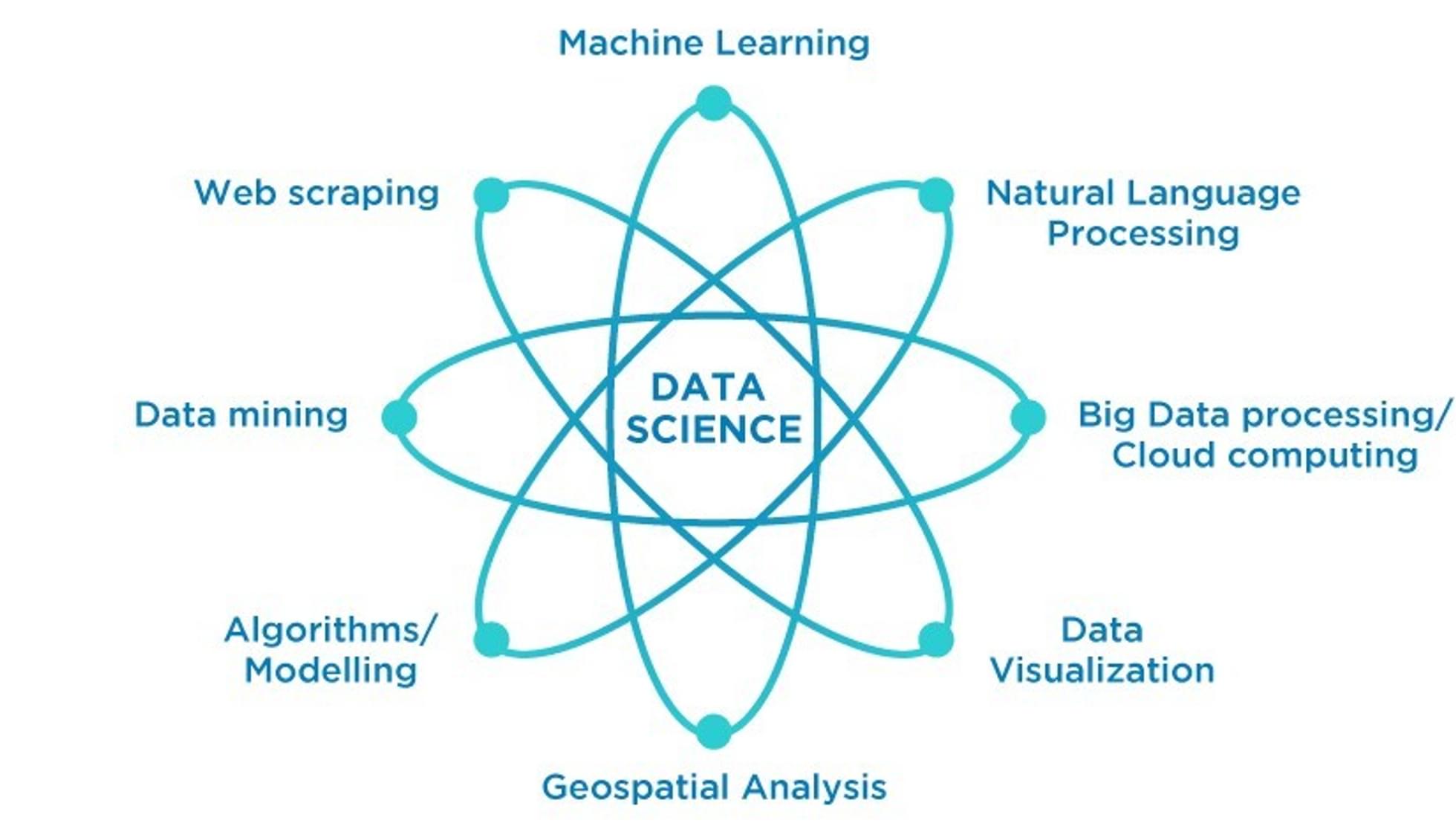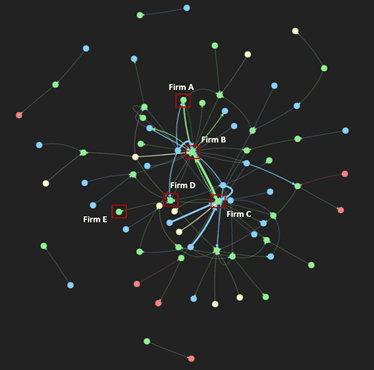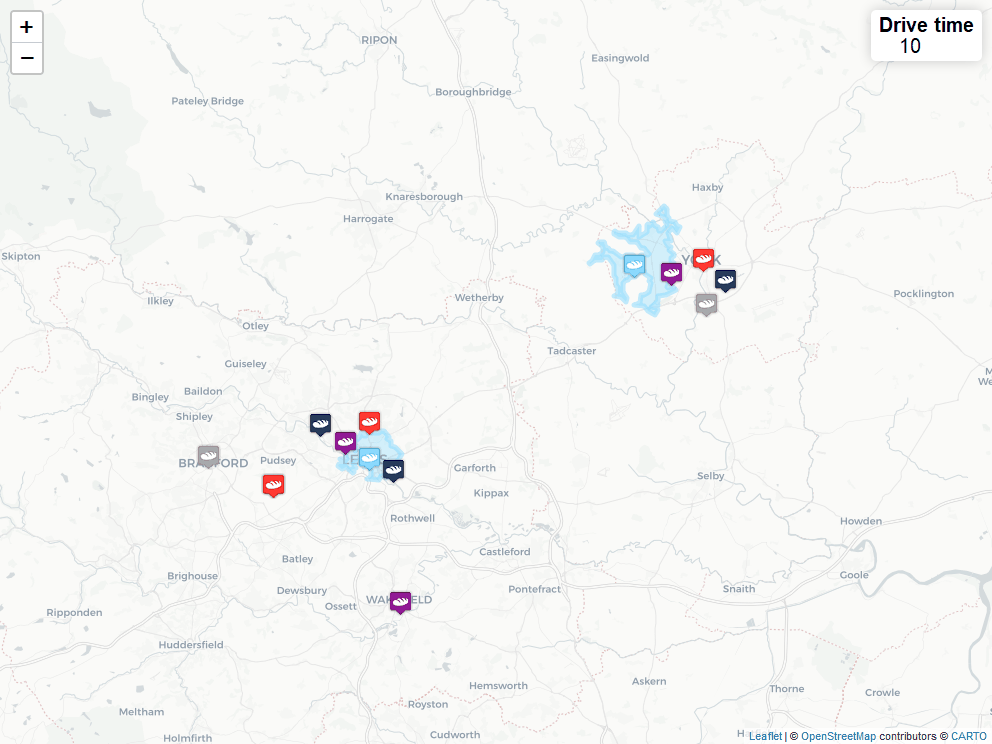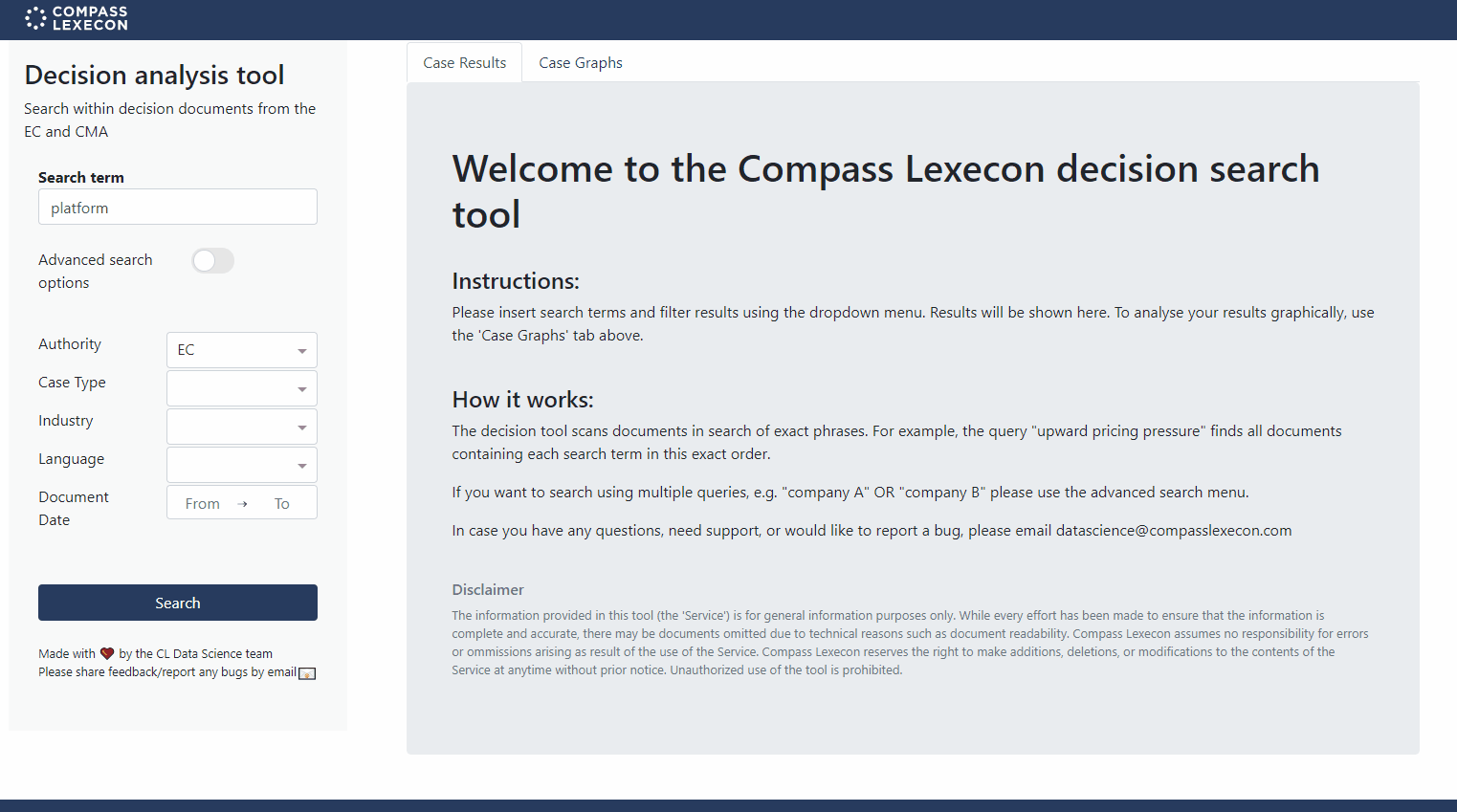Data Science

Share
Compass Lexecon’s data science team brings modern machine learning and sharp data analysis to provide more streamlined and robust economic analysis.
The Compass Lexecon Data Science team was created to bring the latest developments in programming, machine learning, and data analysis to economic consulting.

By applying cutting-edge data science techniques to merger proceedings, antitrust investigations, arbitration matters, and more, we benefit our clients in multiple ways, for example:
- Developing new types of evidence (e.g., using AI) to provide innovative responses to economic questions

- Improving the quality and robustness of arguments, and communicating results better (e.g., via interactive maps)

- Automating data collection, extraction, and processing
- Developing solutions to help clients leverage data, e.g., a tool for searching for specific terms or concepts in competition authority decisions

Data is a critical part of virtually all issues in economics and business. Our advanced data science capabilities are therefore a valuable asset on any Compass Lexecon engagement, empowering our economic consultants to make optimum use of data for providing advice or testimony to clients.


